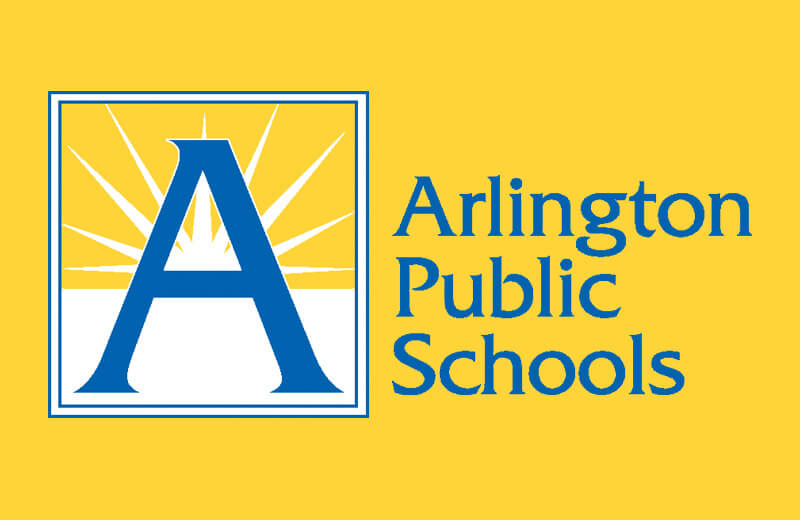SEL Focus: Self-Awareness
Self-awareness is the ability to consider and understand your own emotions, thoughts, values, and experiences, and how these can influence your actions. Improving your self-awareness can allow you to more effectively identify your individual strengths and weaknesses in a range of areas, and therefore potentially improve your decision making and self-management (two other core SEL competencies).
Recognizing how your thoughts and feelings impact your behavior can encourage you to make positive changes in your life and take the perspective that will provide new insight into your own decisions, interests and actions. Within the five core SEL competencies, self-awareness is essential as it not only fosters optimism and responsible decision making, but it also provides a foundation to establish and maintain healthy relationships with others.
Self-awareness is a skill that continually develops as we learn more about ourselves, our abilities, and our values. Strengthening self-awareness early in life can help students succeed socially, emotionally, and academically.
Why Is Self-Awareness Important for Students?
Studies show that students with a strong understanding of emotions perform better academically and report higher levels of well-being. Self-aware students also have more positive relationships with teachers and classmates and engage in less risky behaviors. Strong self-awareness skills continue to benefit students into adulthood. Knowing how to set, plan, and achieve short and long-term goals is critical for college and career success. In fact, business leaders frequently identify self-awareness as one of the top leadership skills.
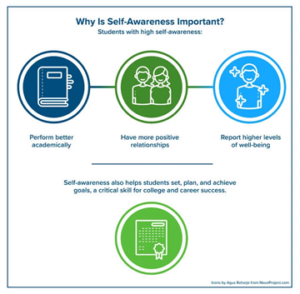
Benefits of self-awareness:
- It gives us the power to influence outcomes.
- It helps us to become better decision-makers.
- It gives us more self-confidence — so, as a result, we communicate with clarity and intention.
- It allows us to understand things from multiple perspectives.
- It frees us from our assumptions and biases.
Developing self-awareness

Unplug – Dedicating time away from screens and creating the opportunity to be on our own for a while reduces tension. Learning to be comfortable in our company is necessary to learn about ourselves and to ground ourselves.

Practice Mindfulness – This exercise involves noticing what is happening now—being fully present with all our senses, noticing sounds, smells, images, thoughts and feelings. It means being open to the experience without resistance or avoidance (Gilbert & Choden, 2013).

Take time to reflect – Research shows that writing down our thoughts in a notebook is an effective technique to process thoughts and feelings. Dedicating time to focusing our attention to understand the whole situation without self-judgment. It helps to clarify ideas and to understand feelings (Pennebaker, 2018).

Practice Listening – We usually think we are good listeners; however, often, we can be more focused on our list of things to do that we miss information. Or, we make assumptions about what others are saying and miss important details. When in conversation, we can pay attention to the other person and to what they are saying. Listening carefully improves communication and feeling understood.

Practice self-compassion – It involves treating ourselves in the way we would treat our best friend when going through a difficult time. Dealing with difficult thoughts and feelings with kindness and understanding. It means that, like all human beings, we can make mistakes. As we develop our self-awareness, we will learn how to manage our reactions and apply strategies to deal with challenges in constructive ways. It also enables us to maintain our social network – a key element in keeping well and having a sense of belonging (Neff, 2011).
Recommended Books to help teach young children about Self Awareness
Each book is available through Arlington Public School Libraries. Click on book title link for more information.

After the Fall: How Humpty Dumpty Got Back Up Again by Dan Santat
After falling off the wall, Humpty Dumpty is very afraid of climbing up again, but is determined not to let fear stop him from being close to the birds.
The Bad Seed by Jory John and Pete Oswald
A sunflower seed who barely escaped being eaten personifies the word bad–he has bad manners, he wears a constant scowl on his face, and he lies about even the littlest things. But when the seed decides he’d like to change, he reveals that one’s attitude is a choice.
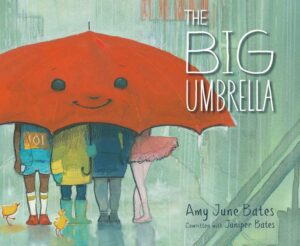
The Big Umbrella by Amy June Bates and Juniper Bates
A spacious umbrella welcomes anyone and everyone who needs shelter from the rain.

Emmanuel’s Dream: The True Story of Emmanuel Ofosu Yeboah by Laurie Ann Thompson and Sean Qualls
In 2001, with one strong leg, Emmanuel Ofosu Yeboah bicycled 400 miles around Ghana to spread the message that “being disabled does not mean being unable.”
How to Be a Lion by Ed Vere
In this picture book, Leonard the lion and his best friend Marianne the duck spend all their time together laughing and playing games. One day, a pack of lion bullies approach Leonard and say hurtful things about how lions shouldn’t be friends with ducks. Leonard is forced to confront the bullies and shows how kindness can overcome negativity.
Julián is a Mermaid by Jessica Love
While riding the subway home from the pool with his abuela one day, Julián notices three women spectacularly dressed up. Their hair billows in brilliant hues, their dresses end in fishtails, and their joy fills the train car. When Juliań gets home, daydreaming of the magic he’s seen, all he can think about is dressing up just like the ladies in his own fabulous mermaid costume: a butter-yellow curtain for his tail, the fronds of a potted fern for his headdress. But what will Abuela think about the mess he makes–and even more importantly, what will she think about how Julián sees himself?
March is Social Work Month
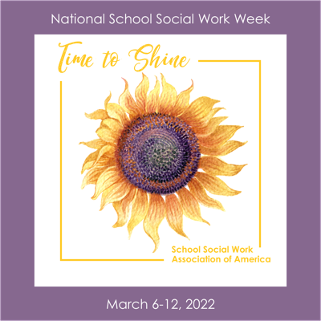 Celebrated each March, National Professional Social Work Month is an opportunity for social workers across the country to turn the spotlight on the profession and highlight the important contributions they make to society.
Celebrated each March, National Professional Social Work Month is an opportunity for social workers across the country to turn the spotlight on the profession and highlight the important contributions they make to society.
The theme for Social Work Month 2022 is The Time to Shine.
The School Social Work Association of America (SSWAA) believes that School Social Workers shine brightly for their students, families, and school communities.
Shining hope. Shining understanding. Shining respect.
The Role of School Social Workers
School Social Workers provide a focused reach to support all students specifically in areas of social-emotional learning and mental health needs, and are uniquely trained to integrate the school, community, and family context into interventions and resource referrals. School social work interventions reduce barriers to learning enabling students to be physically, mentally, and emotionally present and ready to learn in the classrooms.
School social workers are educated to work towards equity and root their practices in social justice…this means school social workers are educated to break down opportunity gaps and address systemic inequities, which can be exacerbated by current social and environmental conditions.
School social workers address barriers to learning honoring an individual’s dignity and worth… this means through relational work school social workers are trained to meet mental health, social, emotional, behavioral, and physical needs to contribute to academic achievement.
School social workers utilize trauma sensitive healing centered approaches and have specific training about cultural awareness… this means school social workers are trained to support and apply culturally responsive school practices.
As you can see, our diverse and talented social workers are essential to removing barriers for students and strengthening family-school partnerships. View this video featuring APS school social workers and please take time to thank our social workers during School Social Worker week, March 6-12, and year-round!.

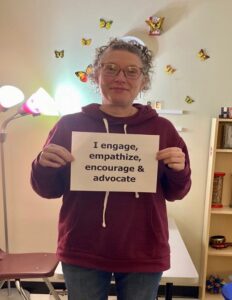
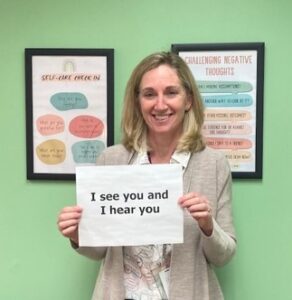
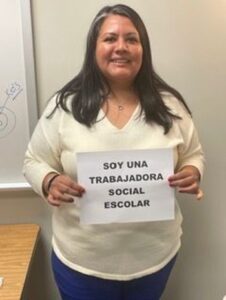
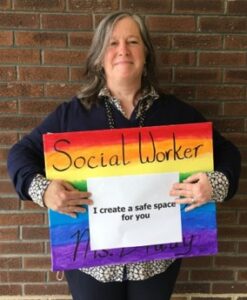
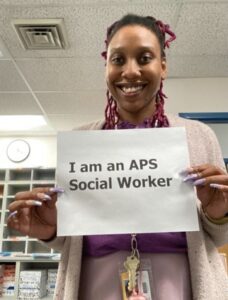
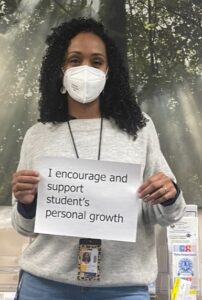
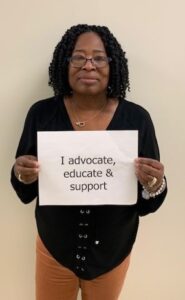
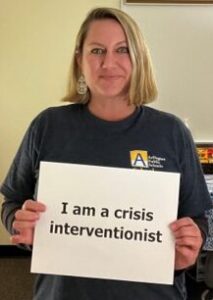
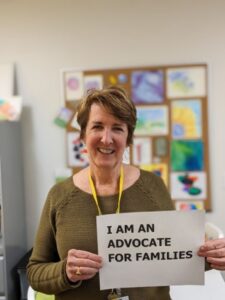
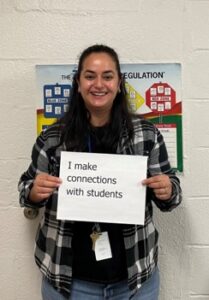
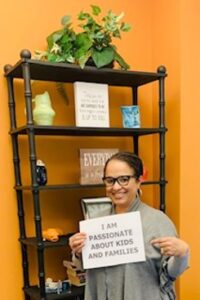
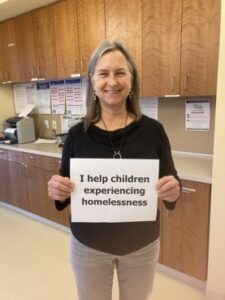
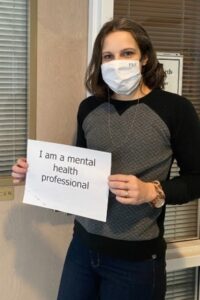
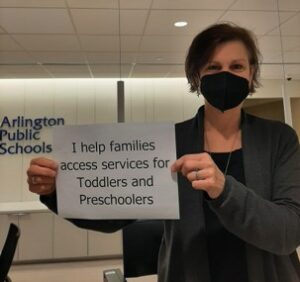
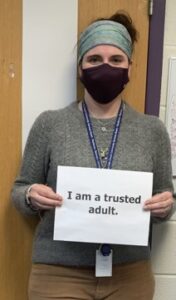
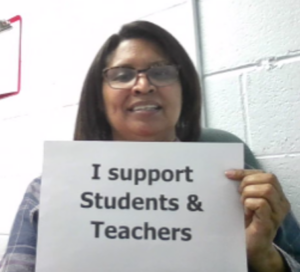
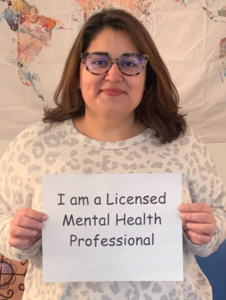
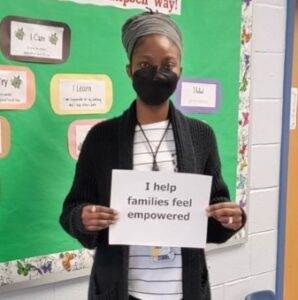
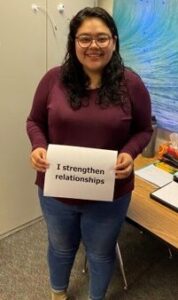
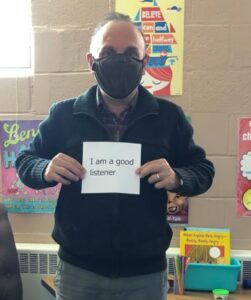
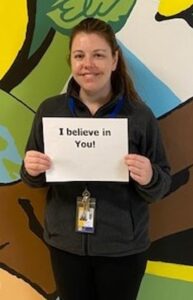
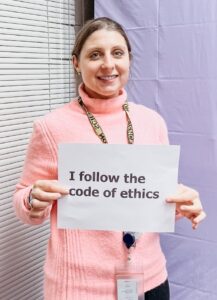
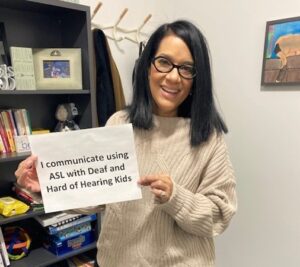
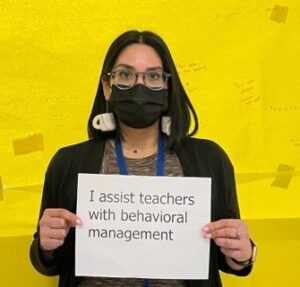
National Drug & Alcohol Facts Week March 21-27, 2022
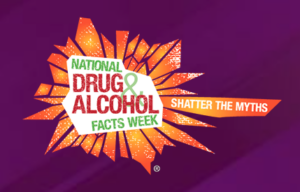
National Drug and Alcohol Facts Week, or NDAFW, is an annual, week-long, health observance that inspires dialogue about the science of drug use and addiction among youth. It provides an opportunity to bring together scientists, students, educators, healthcare providers, and community partners—to help advance the science, so that we can improve the prevention and awareness of substance misuse in our own communities and nationwide. It was launched in 2010 by scientists at the National Institute on Drug Abuse (NIDA) to stimulate educational events in communities so teens can learn what science has taught us about drug use and addiction. The National Institute on Alcohol Abuse and Alcoholism became a partner in 2016, and alcohol has been added as a topic area for the week. NIDA and NIAAA are part of the National Institutes of Health, and work with leading organizations, media outlets, and other Government agencies to spread the word about NDAFW.
Be on the lookout for more information as our Substance Abuse Counselors in APS will be recognizing National Drug & Alcohol Facts Week in our schools. For more information about Substance Abuse Counselors in APS, click here.
UPCOMING: APS Social-Emotional Learning Survey
We invite you to visit our webpage to view survey questions, FAQ’s about and learn more about the development of the APS SEL Survey from Panorama
SEL Universal Survey
APS has contracted with Panorama to conduct a Social-Emotional Learning Survey for our students in Grades 3-12. The purpose of this survey is to help APS identify, report, and address all student’s social-emotional and academic needs. Students will be participating in this online survey once during a three-week window starting on March 21 through April 8.
Panorama’s SEL Survey is aligned with the Collaborative for Academic, Social, and Emotional Learning (CASEL) five SEL competencies which include self-awareness, self-management, social awareness, relationship skills, and responsible decision-making. The SEL Survey will allow students to reflect and report on their own skills and experiences, as well as their feelings of belonging, feelings about their school environment, and mood. These factors are critical to positive academic, social, and emotional success.
SEL survey data 1) will provide an increased understanding of individual, classroom, school, and district needs, 2) identify students who might require or benefit from additional interventions or supports, 3) monitor progress and growth over time, 4) provide data to inform SEL program decisions and tiered systems of support, 5) drive equity, and 6) inform universal SEL supports.
Survey data will only be accessible to teachers, administrators, and staff with legitimate educational interests. Results will be maintained in secure files and databases accessible only to these individuals. Parents and guardians will receive an individualized report regarding their student’s survey results following each assessment window. School staff will be available to discuss results with families on planned support.
To learn more about the SEL Survey, view survey questions and FAQ’s, we invite you to visit our webpage at Panorama’s Social Emotional Learning Survey .
LEARN MORE: Youth Mental Health First Aid Training Available to Staff & Parents
The Office of Student Services continues to be committed to training all new staff and re-certifying staff in Youth Mental Health First Aid (YMHFA). This is a 6-hour course that teaches how to identify, understand, and respond to signs of mental illnesses and substance use disorders. Registration for staff is through Frontline. Parents can register by calling the Office of Student Services at 703-228-6062. Training will be provided every month for the remainder of the year.
Upcoming session dates are: March 31, April 27, and May 10.
LEARN MORE: National Alliance on Mental Illness Arlington Parent Support Groups
The National Alliance on Mental Illness, NAMI, provides group support geared to parents whose child is experiencing symptoms of a mental illness, including depression, anxiety, eating disorders, mood disorders and more. No diagnosis is required to participate. Participants are given the opportunity to share their story, experience support, and glean guidance (as desired) from group members regarding both community and school resources. Confidentiality is respected.
School Age Students and Teens (PK-12): For Questions Contact Michelle Best ([email protected])
Sundays 7pm-8:30pm Register here for Zoom Meeting(s)
- March 13th and 27th
- April 10th and 24th
- May 9th and 22nd
- June 5th and 19th
Older Teen and Young Adults: 3rd Sunday 1-3pm
For questions contact: Adults: Naomi Verdugo ([email protected]) or Alisa Cowen ([email protected])
View Arlington NAMI Support Groups 2022 Flyer
LEARN MORE: Trans 101 for Extended Family
Kirby Creative Clinical Solutions will offer 2 free virtual presentations in March available to ANYONE who has a relative who is gender diverse.
Wednesday, March 16 from 2:30 – 4 PM
Monday, March 21 from 9:30 – 11 AM.
There is no fee, no registration form, and any person with a trans or non-binary family member may attend. However, you must register in order to receive the zoom link. When you register, please indicate which of the two sessions you would like to attend. Please email [email protected] to register.
In addition, for those who would like to join a 6 session Support Group for more education and a chance to share your concerns and experiences, a group will begin on March 30 and meet on select Wednesdays from 2:30 – 4 PM. Please email [email protected] for more information about support groups.
Resources:
CIGNA School Support Line – OPEN TO ALL
Don’t do it alone. There are many reasons to seek help. Some are common, others more serious. Either way, talk with us today if you or a family member are dealing with: Anxiety, Depression, Abuse, Eating disorders, Bullying, Self-harm, Addiction, Peer Pressure, Suicidal thoughts or anything else. No one has to be a Cigna customer to call. If you go to school, or have a child who goes to school, the School Support Line was created for you.
This is a no-cost, confidential service that puts students and families in touch with mental health professionals who know how to listen, ask the right questions, and offer advice. And it’s available around the clock for you and for members of your family. 833-MeCigna (833-632-4462) We’re here 24/7/365!
- School Support Line Spanish
- School Support Line Amharic
- School Support Line Arabic
- School Support Line Mongolian
- School Support Line English
Intake/Same Day Access (703-228-1560)
Beginning December 20, 2021, Same Day Access/Intakes will be scheduled through 703-228-1560. Visit our website: Children’s Behavioral Healthcare – Official Website of Arlington County Virginia Government (arlingtonva.us) for updated information on how to access mental health and substance use treatment services.
Anyone ages 21 and under experiencing an urgent mental health need is encouraged to contact CR2 (844-627-4747) and anyone experiencing a psychiatric emergency is encouraged to contact Emergency Services (703-228-5160). We will provide an intake assessment to children who are returning to the community from acute psychiatric hospitalization — please call to coordinate.
REACH – Region II (855) 897-8278 If someone you care about, who has an intellectual or developmental disability, is experiencing a crisis due to behavioral or psychiatric needs, the REACH program can help. REACH is the statewide crisis system of care that is designed to meet the crisis support needs of individuals who have a developmental disability and are experiencing crisis events that put them at risk for homelessness, incarceration, hospitalization and/or danger to self or others.
For non-urgent, but concerning behavior, access resources through Arlington Children’s Behavioral Health by clicking here.
Local, Free Food Distributions
| Capital Area Food Bank has several monthly food distribution sites in Arlington available for individuals and families in need. Produce is distributed for free, and no registration is required! The Capital Area Food Bank’s Community Marketplace takes place at Arlington Mill Community Center, 909 S. Dinwiddie St., on the 4th Saturday of every month at 9 a.m. Capital Area Food Bank also distributes at a Mobile Market at 700 S Buchanan St, on the 2nd Thursday of the month from 3 p.m. – 5 p.m. For a full list of local Mobile Market food distributions, view and share this flyer in English and Spanish, or call the information line at (202) 769-5612. |
 Contact
Contact  Calendars
Calendars Careers
Careers Engage
Engage  District
District




